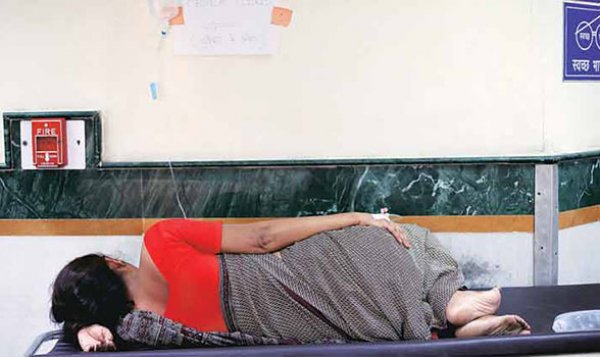The first global analysis that assesses countries on sustainable development goal (SDG) health performance was launched at a special event at the UN General Assembly Wednesday and published online in The Lancet.
The study by an international collaboration on the Global Burden of Disease (GBD) analysed each country’s progress towards achieving health-related SDG targets by creating an overall SDG Index score. Countries were then ranked by their scores to show which nations are closest to achieving the targets.
A nation’s SDG index score is based on a scale of zero to 100. In 2015, Iceland topped the overall list with a score of 85. The nation with the lowest score was the Central African Republic — 20. The United States had a score of 75, just behind Slovenia, Greece and Japan, all at 76. India’s score was 42. The US was ranked 28, above Estonia and New Zealand, while UK was rank 5.
One of the health-related indicators is malaria. Countries like Sri Lanka, Iraq, Syria, Libya and others that have eliminated malaria scored 100 on that health indicator while India registered only 10 points.
Another indicator is under-five mortality. The target for achieving the Millennium Development Goal (MDG) was 2015. India is close to achieving the MDG goal of 42 deaths per 1,000 births and, in 2014, registered 45 deaths per 1,000 births. On a scale of 0-100, India has a score of 39 on this front.
On safe hygiene practices, India has 8 on the scale of 0-100. India’s highest score has been 93 on the ‘war’ indicator front that assesses age-standardised death rate due to collective violence and legal intervention, per 100,000 population. Countries like Syria, Iraq, Libya and Pakistan have registered single digits.
The poor performance has prompted co-author of the study and senior researcher Dr Vikram Patel, Professor of International Mental Health at the Centre for Global Mental Health, London School of Hygiene and Tropical Medicine, to point out that the reason why India continues to be one of the worst-performing countries in health is because its political and medical classes have persistently ignored public health principles which ultimately improve a nation’s health, such as addressing social determinants of disease and ensuring high-quality, accountable, universal health care for people.
The SDGs are 17 universal goals, 169 targets and 230 indicators set by the United Nations in 2015 to guide a range of pressing problems including food and water security, poverty and climate change up to 2030. The SDGs follow and expand on the MDGs which lapsed at the end of 2015. Health is at the core of the SDGs and the third SDG aims to ensure healthy lives and promote well-being at all ages. Health-related indicators are present among 11 of the other 16 goals.
Using data from the Global Burden of Diseases, Injuries and Risk Factors (GBD) study between 1990 and 2015, Professor Stephen Lim from the Institute of Health Metrics and Evaluation (IHME) at the University of Washington, Seattle, and others estimated the current status of 33 of the 47 health-related indicators. To enable easier comparison, they created a health-related SDG index with a rating of 0-100 that combines these 33 health-related indicators to measure progress for 188 countries between 1990 and 2015.
(by Anuradha Mascarenhas - indianexpress.com)






